Turkey Tail Mushrooms and Immunity
Just like that, with the blink of an eye, we’ve reached cold and flu season…
It feels like just yesterday we were basking in the sun’s warmth or eagerly looking for the nearest tree to provide us with some shade. The days are becoming shorter, Thanksgiving has passed us by, and Christmas is so close, we can almost hear those sleigh bells ringing.
We’ve reached that time of year where it feels almost essential to kick our immune systems into high gear and prepare our bodies, both physically and mentally, for what’s to come. We try our best each year to prevent any unwelcome visitors from sneaking in past our defenses; we wash our hands, drink our teas, socially distance, and masks and vaccines are always at the ready if we need them. Sometimes, these efforts prove to be futile, and our bodies need a little extra help; especially when we’re living in a society that is constantly functioning at such a fast pace, we can barely take a breath and step back. Not only are we trying to keep up, the stress levels we experience from doing so make us far more susceptible to illness when our defense mechanisms are exhausted.
Turkey Tail (Trametes versicolor) is one of many mushrooms highly researched for its robust medicinal qualities, and yet it hasn’t gained the mainstream popularity that mushrooms, such as Reishi, have [1]. Full of antioxidants and immune-boosting complexes, I’m surprised it hasn’t become a staple in our pantries. The most studied and biologically active compound found in Turkey Tail is Polysaccharide K (PSK), an approved adjunct to cancer treatment in Japan, where its use is recognized for strengthening the immune system and improving longevity in cancer patients [2]. However, the fungus as a whole has been shown to enhance innate and adaptive immune responses [3], meaning its use allows us to reinforce our body’s first and second lines of defense against pathogens.
Now we all know the importance of antibodies; these are blood proteins that our bodies produce in response to interacting with foreign pathogens, which will then fight to eliminate these unwanted substances from our systems if encountered. However, antibody responses don’t always last a lifetime. So, what does this have to do with Turkey Tail? Well, this medicinal mushroom has been found to enhance antibody production, especially of IgM and IgG, the latter of which makes up approximately 75% of the serum antibodies in humans [4]. IgM is made when the body fights new infections and IgG oversees control of immune responses against viruses.
The polysaccharide protein complexes, PSP and PSK, found in Turkey Tail both contain large amounts of alpha- and beta-glucans. Beta-glucans are immune-stimulating agents that have been shown to induce the production of nitric oxide (NO) and inducible nitric oxide synthase (iNOS) in macrophages treated with Turkey Tail, which allows them to efficiently phagocytize and kill bacteria [5]. In fact, this study predicts that this phenomenon opens the door to the possibility of using Turkey Tail as an alternative to antibiotics in certain resistant bacteria [5].
Turkey Tail is also packed with antioxidants, compounds that protect our cells from damage and inflammation. Not only is an imbalance of antioxidants and unstable molecules potentially detrimental to our immune systems, but it has also been linked to increased risks of developing certain health conditions, such as heart disease. With an abundant source of phenol and flavonoid antioxidants, Turkey Tail further benefits the immune system by reducing inflammation and protecting the structural integrity of our cells and tissues [6,7].
It's not lost on us that the majority of people in today’s society experience stress to some extent, and as mentioned previously, stress makes us more susceptible to illness and even to the development of more serious medical conditions [8]. Of course, our fight-or-flight responses can be lifesaving, but when physiological stress progresses into a chronic state, components of our immune system are negatively impacted. Turkey Tail, much like its fellow medicinal mushrooms, has adaptogenic properties, meaning that it can increase our resistance to stress and assist in preventing our predisposition to disease [9]. Adaptogens help us do this by modulating our hypothalamic-pituitary-adrenal axis, which can become imbalanced during times of chronic stress [9].
DEFEND Now by Eversio Wellness is a concentrated mushroom product containing organic Turkey Tail at a 12:1 extract, meaning you’re getting 1000 mg of Turkey Tail in 2 capsules of the product. And if you’d like an immune-strengthening addition to this year’s hot cocoa, feel free to add the contents of each capsule to your cozy drink.
Of course, there is no magical cure to all our problems, otherwise we’d all be living forever! Don’t forget that health starts at the foundations; ensure you’re getting enough restful sleep, eating nourishing foods, hydrating, and participating in heartrate-increasing movement every day. Most importantly, don’t forget to take care of yourself, both mentally and physically.
The next time you find yourself on a hike or nature walk, pay close attention to the dead logs around you. You might find yourself face to face with this beautiful mushroom, decorated with multi-colored rings of brown shades resembling an actual Turkey Tail. It’ll be hard to miss!
[1] Hobbs, Christopher. (2004). Medicinal Value of Turkey Tail Fungus Trametes versicolor (L.:Fr.) Pilat (Aphyllophoromycetideae). A Literature Review. International Journal of Medicinal Mushrooms - INT J MED MUSHROOMS. 6. 195-218. 10.1615/IntJMedMushr.v6.i3.10.
[2] PDQ Integrative, Alternative, and Complementary Therapies Editorial Board. Medicinal Mushrooms (PDQ®): Patient Version. 2022 Jul 29. In: PDQ Cancer Information Summaries [Internet]. Bethesda (MD): National Cancer Institute (US); 2002-. Available from: https://www.ncbi.nlm.nih.gov/books/NBK424937/
[3] Benson KF, Stamets P, Davis R, Nally R, Taylor A, Slater S, Jensen GS. The mycelium of the Trametes versicolor (Turkey tail) mushroom and its fermented substrate each show potent and complementary immune activating properties in vitro. BMC Complement Altern Med. 2019 Dec 2;19(1):342. doi: 10.1186/s12906-019-2681-7. PMID: 31791317; PMCID: PMC6889544.
[4] Habtemariam S. Trametes versicolor (Synn. Coriolus versicolor) Polysaccharides in Cancer Therapy: Targets and Efficacy. Biomedicines. 2020 May 25;8(5):135. doi: 10.3390/biomedicines8050135. PMID: 32466253; PMCID: PMC7277906.
[5] Shao-Hua Shi, Wen-Tao Yang, Ke-Yan Huang, Yan-Long Jiang, Gui-Lian Yang, Chun-Feng Wang, Yu Li. β-glucans from Coriolus versicolor protect mice against S. typhimurium challenge by activation of macrophages. International Journal of Biological Macromolecules, Volume 86, 2016, Pages 352-361. ISSN 0141-8130. https://doi.org/10.1016/j.ijbiomac.2016.01.058.
(https://www.sciencedirect.com/science/article/pii/S0141813016300605)
[6] Bendich A. Physiological role of antioxidants in the immune system. J Dairy Sci. 1993 Sep;76(9):2789-94. doi: 10.3168/jds.S0022-0302(93)77617-1. PMID: 8227682.
[7] Rašeta M, Popović M, Knežević P, Šibul F, Kaišarević S, Karaman M. Bioactive Phenolic Compounds of Two Medicinal Mushroom Species Trametes versicolor and Stereum subtomentosum as Antioxidant and Antiproliferative Agents. Chem Biodivers. 2020 Dec;17(12):e2000683. doi: 10.1002/cbdv.202000683. Epub 2020 Nov 17. PMID: 33058392.
[8] Segerstrom SC, Miller GE. Psychological stress and the human immune system: a meta-analytic study of 30 years of inquiry. Psychol Bull. 2004 Jul;130(4):601-30. doi: 10.1037/0033-2909.130.4.601. PMID: 15250815; PMCID: PMC1361287.
[9] Wynn SG, Fougère BJ. Veterinary Herbal Medicine: A Systems-Based Approach. Veterinary Herbal Medicine. 2007:291–409. doi: 10.1016/B978-0-323-02998-8.50024-X. Epub 2009 May 15. PMCID: PMC7151902.




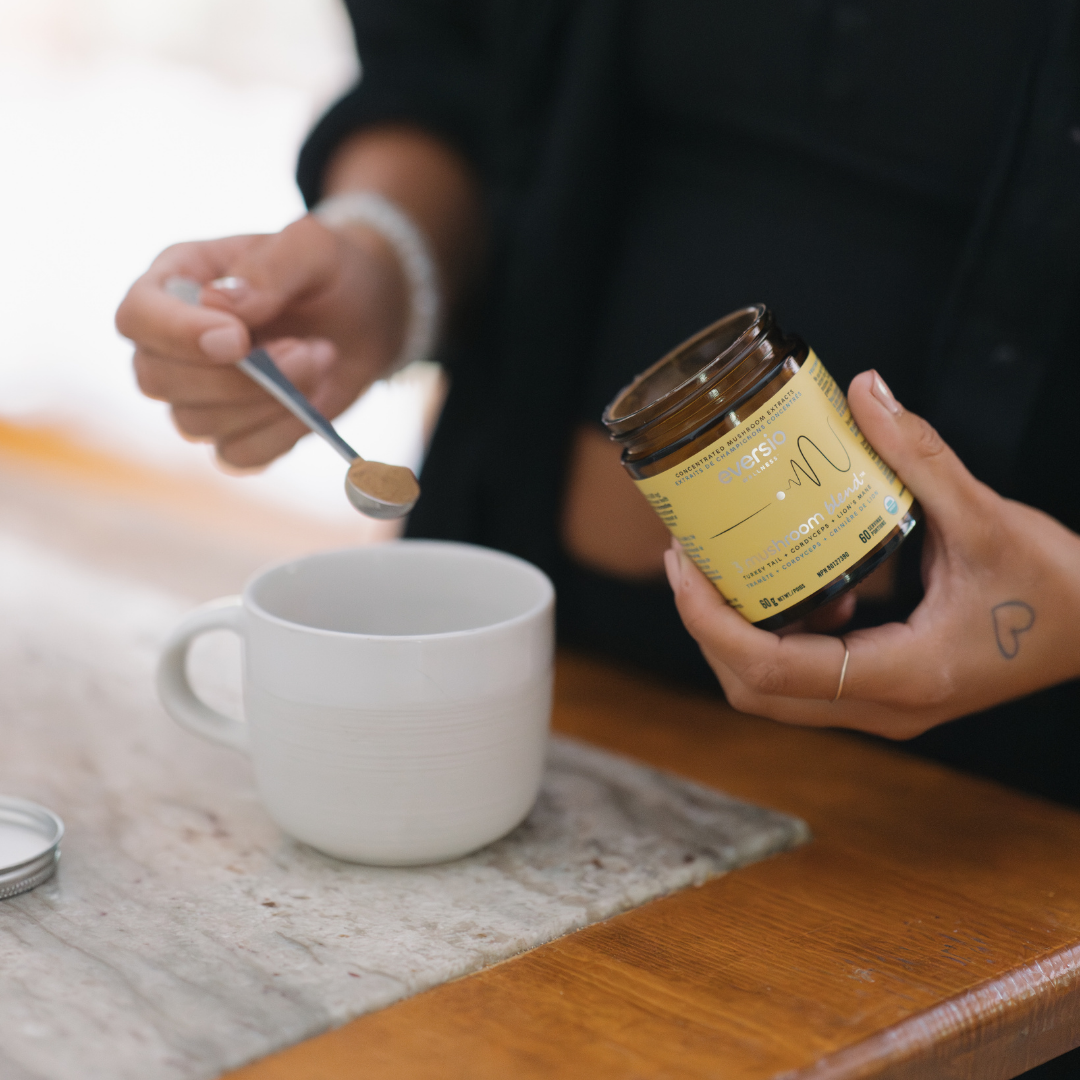

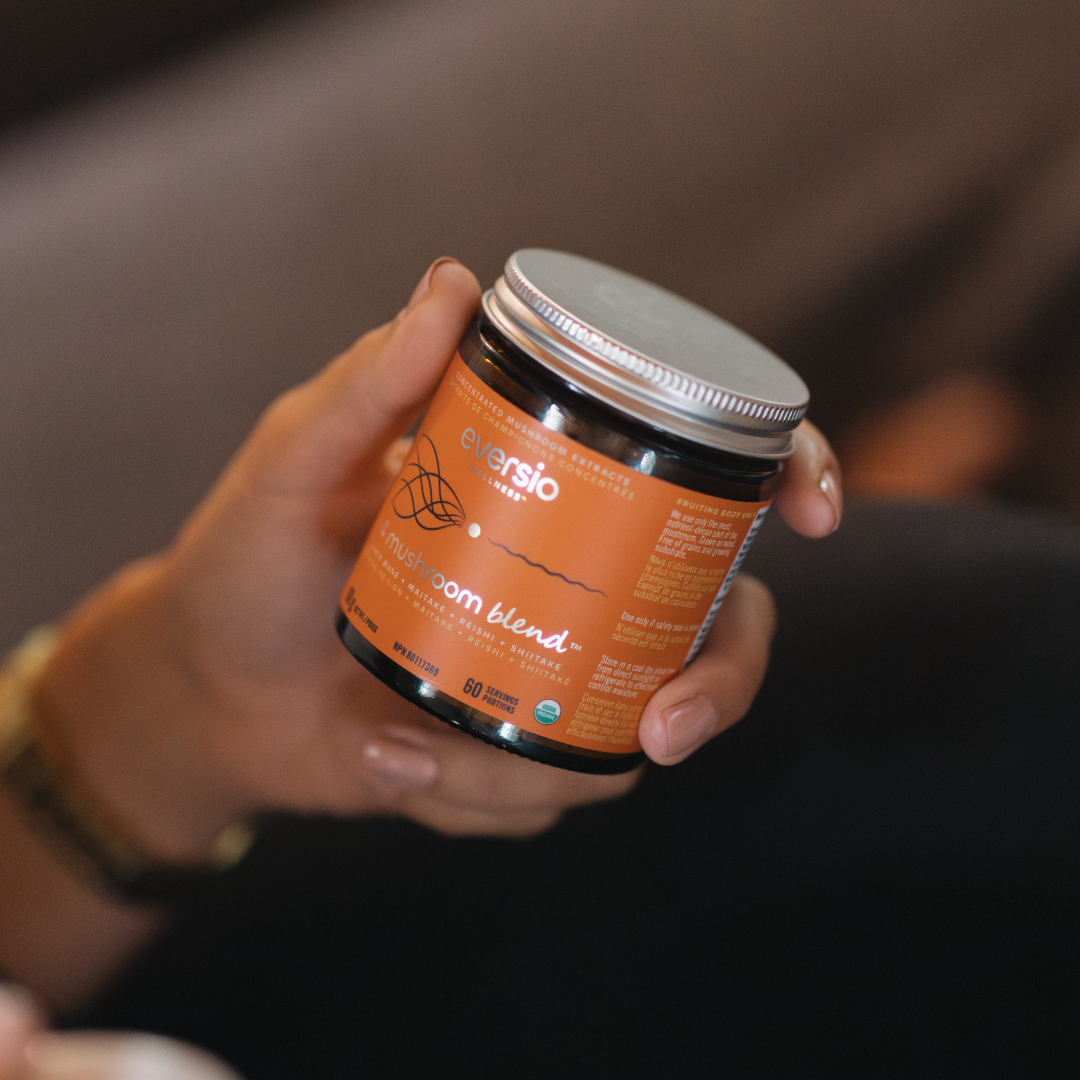

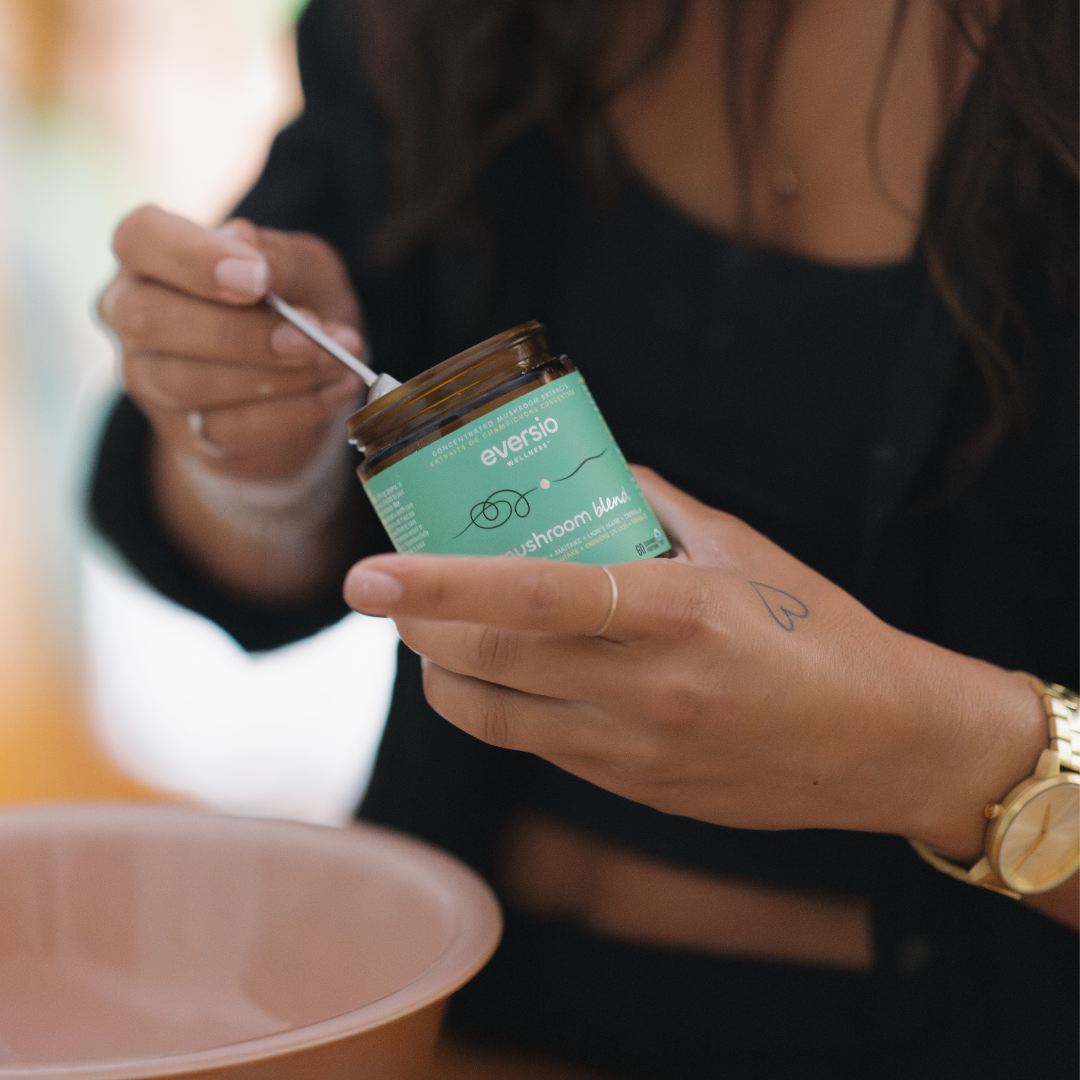

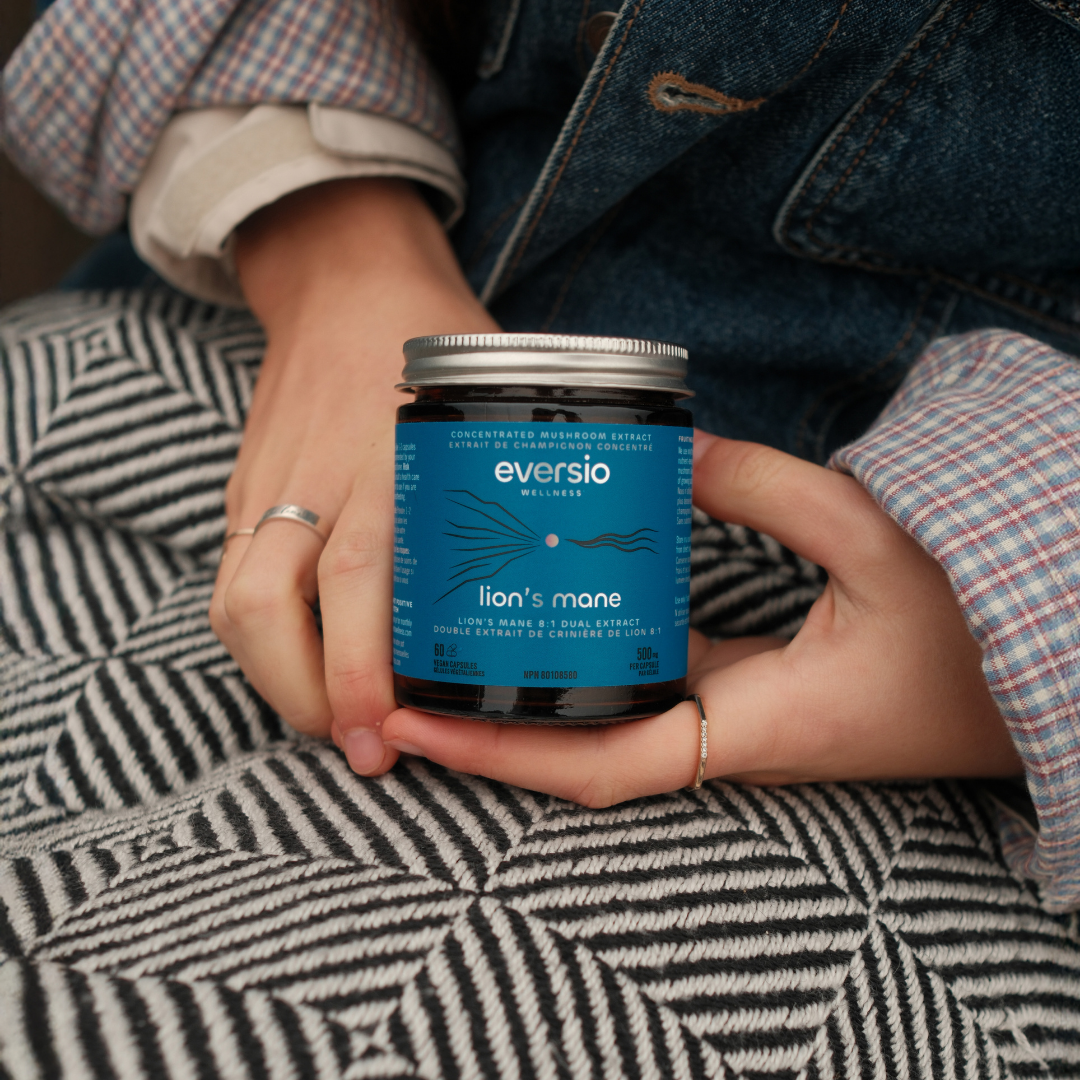


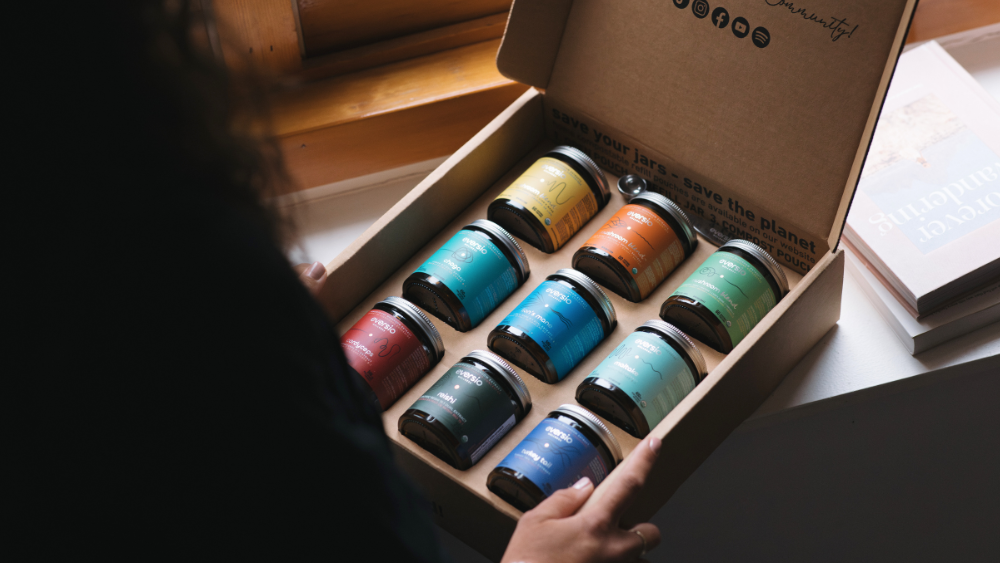







Leave a comment
All comments are moderated before being published.
This site is protected by hCaptcha and the hCaptcha Privacy Policy and Terms of Service apply.